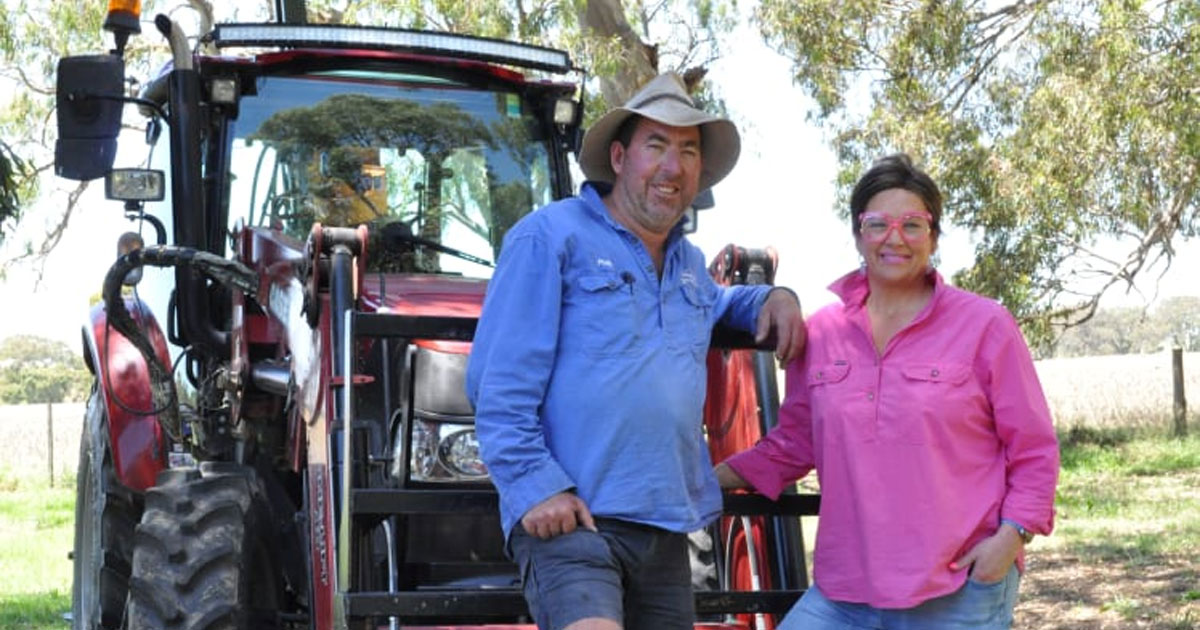
This is a transcript of the article, Advancing Women In Agriculture, published by the Southern Argus on January 18, 2024.
When Currency Creek farmer Belle Baker was growing up, women weren’t always accepted as farmers.
These days Ms Baker, with help from her partner Patrick O’Driscoll, is tailor-making courses to help women on the land fill gaps in their knowledge, including the ground breaking Tractoring for Women program.
“Through our farm contracting business, we came into contact with all sorts of landowners, particularly small acreage lifestyle farmers – people who don’t necessarily come from a farming background,” she said.
“A lot of those women were telling me, they don’t know how to drive a tractor, and that was where the idea came from.
“I also have a girlfriend whose husband is away a fair bit, and she would have to wait for the neighbour to get home to come around to her place to drive the tractor to feed her horses.
“And she went ‘I want to be independent, it is a tractor not an airplane’… She put a fair bit of pressure on me.”
Ms Baker said the growing number of women in agriculture meant they were increasingly being recognised for their skills and expertise, but there was still some way to go.
“It was 1994 when women were legally recognised as farmers,” she said.
“Before that it was only men that were given the title, which is just nuts.
“I turned 50 last year, and in my life-time things have changed significantly.
“At least now it is a conversation that we are all having.
“I think most people would recognise that there is still work to do and change needs to happen.”
The couple are passionate about their Tractoring for Women program.
“It is a one-day, hands-on course where we teach the women everything they need to know, and none of the dull, boring stuff,” Ms Baker said.
“We do discuss the safety elements because tractors are still the number one cause of deaths on Australian farms.
“Then we identify the major parts of the tractors that we may come into contact with such as cleaning out the air filter.
“We also look at the different brands, and identify where all the parts and major grease points are.”
Ms Baker said once women were driving with confidence, the next steps are taken.
“One of the most annoying things that I found, was needing to move the hay bales, but the bucket would be on the tractor,” she said.
“I would have to wait for Patrick to come home and help me put the forks on to move hay bales.
“Once we have got these women driving with confidence, we teach them how to take the forks off and put a bucket on, and how to lift and load hay bales into feeders, and also how to move a pile of gravel or dirt.
“We also look at slashers, and how to attach three-point linkage implements, whether it be a slasher or harrows.
“If there is a fire approaching or you want to look at fire prevention, then having that ability to go and do a fire break is very important.
“If there is a fire approaching, I am out… however, having that knowledge and the confidence that if you had to, you could, it means you will be able to make a better decision in that emergency situation.”
Ms Baker said for many women taking part in the Tractoring for Women program, the new skills were liberating.
“They go and look at a tractor and think, ‘well, I can drive a car and I can drive a 4WD, but a tractor is next level’,” she said.
“But once you get them in and they are driving, we found that these women were coming back to us saying ‘I have done that, what is next?’.
“These women are going, ‘Right, I can achieve that, what else is possible?’, and that to me is a wonderful outcome that we didn’t foresee.”
Ms Baker and Mr O’Driscoll’s passion for farm education saw them win the Augusta Zadow Safe Work SA award in 2023, which means they can stage two Tractoring for Women programs in February, one at Oakbank and the other in Clare.
Article by Deidre Graham at the Southern Argus
Sign up for our mailing list!
Stay up to date with news about Tractoring For Women, opportunities to take the course, and information about how to become involved by subscribing to our mailing list. We anticipate sending only a few emails each year, with some extra activity leading up to major events. Your information will never be sold or used for other purposes. Belle & Pods
